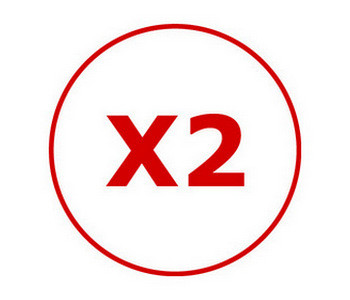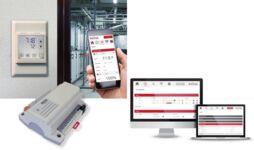X2 - OS

Vector Controls X2 Betriebssystem
X2-Betriebssystem
Das X2-Bediensystem besteht aus einer standardisierten Methode zur Bedienung und Konfiguration einer Reihe von Reglern und Sensoren. Das System basiert auf vorprogrammierten Steuer- und Funktionsblöcken, die mit Hilfe einer Parametrierungsroutine konfiguriert werden können. Alle Produkte des Typs X2 basieren auf der gleichen Philosophie und können mit den gleichen Werkzeugen und Methoden konfiguriert werden. Alle Produkte des Typs X2 können über die Standard-Bedienterminals, das PC-basierte Tool EasySet™ von Vector Controls oder, sofern verfügbar, über Buskommunikation konfiguriert werden.
> Mehr über das Easyset-Programm lesen
> Mehr über die EasyX2-App lesen
X2-Einführung (Englisch)
X2-Dokumentation
Detaillierte Anleitungen zur Einrichtung, Konfiguration und Bedienung finden sich nachfolgend.
X2 Dokumentation
Technische Handbüber:
Bedienungsanleitung:
- 70-00-0952A X2 Web Interface Manual.pdf
- 70-01-0736_X2-Bedienungsanleitung.pdf
- 70-01-0741_X2-Bedienungsanleitung OPT1.pdf
- 70-01-0900A X2 Handbuch Wi-Fi und Ethernet Kommunikation V1_1.pdf
- 70-01-0950B X2 Bedienungsanleitung Tastenanzeige.pdf
- 70-01-0951B X2 Bedienungsanleitung Berührungsanzeige.pdf
- 70-01-0994C X2 Bedienungsanleitung Berührungstasten Anzeige.pdf
Archivierte Handbüber:
- 70-00-0737 X2-Engineering Manual V1-4 .pdf
- 70-00-0737A X2-Engineering Manual V1-5.pdf
- 70-01-0994A X2 Bedienungsanleitung Berührungstasten Anzeige.pdf
X2 Versionsübersicht
Version 1.6 R1 (June 2023)
- SRD2 product type added.
- SRD2 idle display added.
- Low, medium and high-level display function added (SRD2 only).
- Passive infrared sensor PIR and dust sensor support added.
- Passive input description RT/DI (NTC) improved.
- Light control mode for motion detection added and description of toggle and dimmer mode updated.
- Time scheduling description improved.
- Small improvements and bug fixes.
Version 1.5 R1 (April 2022)
- Virtual Inputs: A new setting was created to allow for use of accessory devices such as AEI-4UI. These accessories allow to add physical inputs to X2 devices.
- Extended delays for alarms are extended up to 10 days. Backwards compatibility: alarm delays of less than 8 hours were not affected. For longer than 8 hours they are increased with each step by first 4, then 8 and finally 12 hours. Therefor it is now possible to create alarms with a delay of up to 252 hours. This allows to create an alarm if for example setpoints are not met for an extended period of time.
- Binary outputs in PWM or 3-point-mode may now as well have an intermediate alarm setting. The run time alarm xd10 is used for this purpose. If one alarm is simultaneously assigned to both xd06 and xd07 instead of switching the output to 0 or 100% it will go to the level defined in xd10.
- Reverse sequences for analog outputs allowing for control of 6-way valves and air-side dampers. One sequence can be set to operate from 0...5V and the other from 5-10V with 5 V being the off position and for example 0V the full cooling and 10V the full heating position.
- Improved PI control setting. It is now possible to set the reset time by setting the Integral interval parameter to 0. Instead of entering KI the user can now specify the reset time that follows general control theory.
- Analog output in step mode. The limits of the analog output may be changed depending on which binary stages are active. This allows to complement several compressors with a modulating stage to allow for flawless demandbased load control.
- Repeated write requests with identical values to eeprom from bus modules are ignored.
- Absolute humidity can now be calculated as new option of special function virtual inputs.
- Thermodynamic conversion for refrigerants: pressure to temperature conversions are added to special function of virtual inputs.
- Scale factor is added to special function of virtual inputs.
- Better (correct) handling of inputs with different multiplication setting for sensors and virtual inputs in special function mode.
- Enable controller through alarms or interlocks with 1FU8. An alarm selection register is added to activate controller if an alarm or interlock is active. This may be used for an after hours override contact or as frost protection. When enabled or disabled with alarms. The controller will return to the previous active mode after the alarm goes away.
- Many other small improvements and bug fixes.
Version 1.4 R9 (June 30, 2020)
- Re-activate step delay for loop switching states
Version 1.4 R8 (June 9, 2020)
- Add factor to temperature compensation for TRI2
Version 1.4 R7 (May 7, 2020)
- Bug fix RH display in Fahrenheit mode for TRI2
Version 1.4 R6 (December 23, 2019)
- Improve communication with RH sensor if init problem
- Improve temperature compensation settings for TRI2
Version 1.4 R5 (May 29, 2019)
- Change to run time schedule even no RTC is installed
- Increase of sampling of analog input ; Bug fix LED of TCI2
- Improvement of TRI2 sensing ; Adjust for Sensirion VOC sensor for TRI2/SOC2
- Bug fix °F/°C change
Version 1.4 R4 (May 29, 2018)
- Bug fix cascade flag for loop h/c change on enable routine
- PWM high limit frequency mode
- Change in clock detection for Err3 and for clock initialization
Version 1.4 R3 (May 15, 2018)
- Bug fix CO2 calculation of delta for sensor inputs
Version 1.4 R2 (March 22, 2018)
- Change of init string to detect TRIAC and passive inputs
- Bug fix compensation parameter
- Bug fix TCI2-C input measurement
Version 1.4 R1 (März 19, 2018)
- Change configuration word to enable Brown out interrupt
Version 1.4 R0 (November 14, 2017)
- Added Special input function
- Changed timing philosophy for fan/do to parallel
- In PWM if demand is 0, do not start new cycle
- Add signal selection for AO
- Add added features for CO2 sensors (calib, ABC on/off)
- Add driver for VOC sensor made by Sensirion

